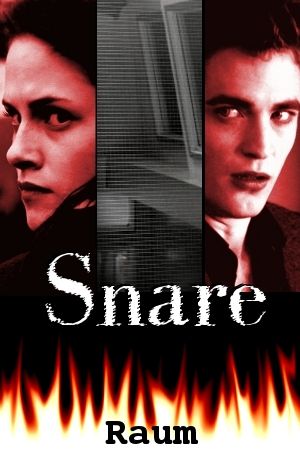Today's guest is Brian Sweany, author of Exotic Music of the Belly Dancer.
This novel's title sounds intriguing, doesn't it? Here's a full summary:
This novel's title sounds intriguing, doesn't it? Here's a full summary:

Hank Fitzpatrick’s life is what you might expect from a man-child
stumbling his way through and beyond adolescence in the late 1980s in
small town Indiana: hypersexual, drunk, stoned, prone to fits of
spontaneous masturbation, occasionally Catholic, and accidentally
well-intentioned. His life is in perpetual conflict as he confuses sex
for love, heartache for passion, desperation for honesty, and abuse for
affection.
Caught in the crossfire of raging hormones, bad decisions and family
tragedy, Hank is just a boy not yet ready to be a man. And like many
boys growing up, Hank is desperate to impress his father. The impossibly
perfect patriarch of the family, John Fitzpatrick decides at age
forty-two he wants to have a vasectomy reversal. Is Hank ready to be a
brother again at age seventeen? What about his mother’s narcotics and
gimlet-soaked uterus? A child will come of this, but not without
consequences.
Laura is Hank’s first true love. From their stolen nights together as
high-school sweethearts to their final encounter as twentysomething
adults, they never figure out how to stop hurting one another. Beth, the
girl who loves Hank unconditionally, can only wait for so long before
longing turns to regret. But everything will be okay as long as Hank’s
best friend Hatch is there to help him exorcise his demons with a
half-gallon of bourbon and a bottle of cough syrup.
Exotic Music of the Belly Dancer is more than just a tribute to the
last uninhibited pre-9/11, pre-Facebook generation. It’s a comedy. It’s a
tragedy. It’s a love story. It’s a subversive yet empathetic,
warts-and-all portrait rooted in real-life that kids will read behind
their parents’ backs. And if somewhere along the way we can all share in
the redemptive power of a belly dancer’s love…well, that’s okay, too.
The author has accepted to describe his writing process.
^^^^^^^^^^^^^^^^
Writing a "Coming of Age" Novel About the 80's, by Brian Sweany
I don’t know if my approach to writing the book ever amounted to a conscious process; rather, the process was a by-product of the writing itself. I’m a child of the 80s. Growing up, John Hughes was God in my world, as he was to many kids my age. Hughes had this insight into the adolescent condition that I wanted to emulate as a writer. His empathy for their emotional fragility and self-absorption is something you can’t fake.
I have this quote from Hughes that I keep framed in my office. It reads, “I think it's wrong not to allow someone the right to have a problem because of their age. People say, 'Well, they're young. They have their whole lives ahead of them. What do they have to complain about?' They forget very quickly what it's like to be young.” Maybe there’s your answer.
The real key to writing a coming of age novel is to write in that moment, to not let hindsight prejudice your perspective. I have a fourteen year old daughter, and that day she gets her heart broken for the first time will be the worst day of her life, and I will not minimize her pain by saying something trite or dismissive like, “Someday you’ll look back on this and just laugh it off.” Maybe she will look back and laugh, but right now she has a hole in her heart. She’s that very same gutted, broken-down, universe-of-one teenager you were when your high school sweetheart came back from spring break with another dude on her arm and you cried yourself to sleep for a month. And the last thing she wants her father to be is just another dickhead.
I recall a scathing review of Tom Wolfe’s I Am Charlotte Simmons by Slate editor Jacob Weisberg in which he said Wolfe’s sex scenes read like “anatomy lessons” and that the “seemingly accessible world of [young people] is more difficult to explicate because of the way the nuances of youth culture turn invisible, if not utterly incomprehensible, across the barrier of generations.”
That is exactly right, Mr. Weisberg, and as writers we can’t fake it.
What did you want to have in that was left out, and what did you editors want to leave out that you refused to compromise?
As for what was left out of my manuscript, that’s a sensitive subject, and by “sensitive” I mean if you have a delicate constitution you might want to skip down to the next paragraph. There was an intensely graphic masturbation scene in an early draft in which the protagonist propped himself like a tripod over a toilet and went into some fairly precise and disgusting detail about what was going on. What I loved about the scene, which happened very early in the book, is that it plunged you headfirst into the protagonist’s nihilistic, hyper-sexual world. It was gross and uncomfortable, just what any book about teen sexuality should be. Plus, I was reading a lot of Chuck Palahniuk at the time, I had that Tyler Durden quote “We're a generation of men raised by women” in my head, and I think this scene is where I tried really hard to just punch readers in the face, metaphorically speaking.
Long story short, my editor thought I was trying too hard, and I reluctantly agreed.
Beyond this particular scene, there were very little wholesale changes.
My editor did what a good editor is supposed to do: She made me look at certain superfluous scenes or characters that didn’t move the story along and asked what their value was. If I could find something meaningful or thematic in these situations, they stayed. If not, they were cut or else absorbed into another scene or character.
The author-editor relationship is a constant give and take, however, and I did win my share of battles. The thing I fought hardest to retain were all the 80s pop culture references in the book—140+ by my final count.
There was a concern Exotic Music of the Belly Dancer might be seen as too generational, and the suggestion that maybe I should delete some of the more obscure references. I made my case by taking a page from my old high school German teacher who in four years never spoke English to me inside the classroom. For the reader’s sake, I would settle for nothing less than full immersion. I wasn’t just writing for—to quote my book jacket—“that vast swath of nostalgic, pop-fueled Gen X and Gen Y adults who migrated from John Hughes in the 80s to the reality TV voyeurism of the new millennium” and wanted “to see the homecoming king fall flat on his face, implode in spectacular fashion, dust himself off, then do it all over again.” I was writing for their “sons and daughters who inexplicably think Reagan was cool, buy crimping irons, and wear popped-collar Izods and off-the-shoulder sweatshirts.” If I was going to present a John Hughes-esque time capsule of a world before AIDS, before 9/11 and before Facebook, I couldn’t be half-ass about it.
^^^^^^^^^^^^^^^^
Thank you, Brian Sweany!
Are you curious about the novel? You can purchase it at the following link:
http://ph.thewriterscoffeeshop.com/books/detail/86
http://ph.thewriterscoffeeshop.com/books/detail/86
 Since 2000, Brian Sweany has been the Director of Acquisitions for
Recorded Books, one of the world's largest audiobook publishers. Prior
to that he edited cookbooks and computer manuals and claims to have
saved a major pharmaceutical company from being crippled by the Y2K bug.
Brian has a BS in English from Eastern Michigan University, from which
he graduated magna cum laude in 1995. He's a retired semi-professional
student, with stopovers at Wabash College—the all-male school that
reputedly fired Ezra Pound from its faculty for having sex with a
prostitute, Marian University—the former all-female school founded by
Franciscan nuns that, if you don't count Brian's expulsion, has fired no
one of consequence and is relatively prostitute-free, and Indiana
University via a high school honors course he has no recollection of
ever attending.
Since 2000, Brian Sweany has been the Director of Acquisitions for
Recorded Books, one of the world's largest audiobook publishers. Prior
to that he edited cookbooks and computer manuals and claims to have
saved a major pharmaceutical company from being crippled by the Y2K bug.
Brian has a BS in English from Eastern Michigan University, from which
he graduated magna cum laude in 1995. He's a retired semi-professional
student, with stopovers at Wabash College—the all-male school that
reputedly fired Ezra Pound from its faculty for having sex with a
prostitute, Marian University—the former all-female school founded by
Franciscan nuns that, if you don't count Brian's expulsion, has fired no
one of consequence and is relatively prostitute-free, and Indiana
University via a high school honors course he has no recollection of
ever attending.
Brian has spent most of his life in the Midwest and now lives near
Indianapolis with his wife, three children, and a neurotic Husky/Border
mix named Hank. He’s currently working on his next project, Making Out
with Blowfish, which is the sequel to Exotic Music of the Belly Dancer
and the second book in a planned trilogy. For future details, check out
the author’s website at: www.briansweany.com




























0 comments:
Post a Comment